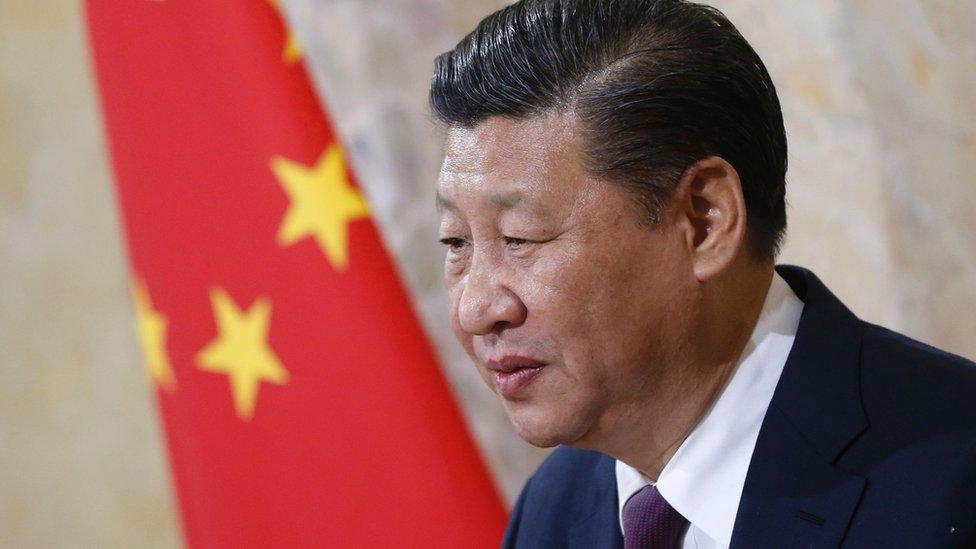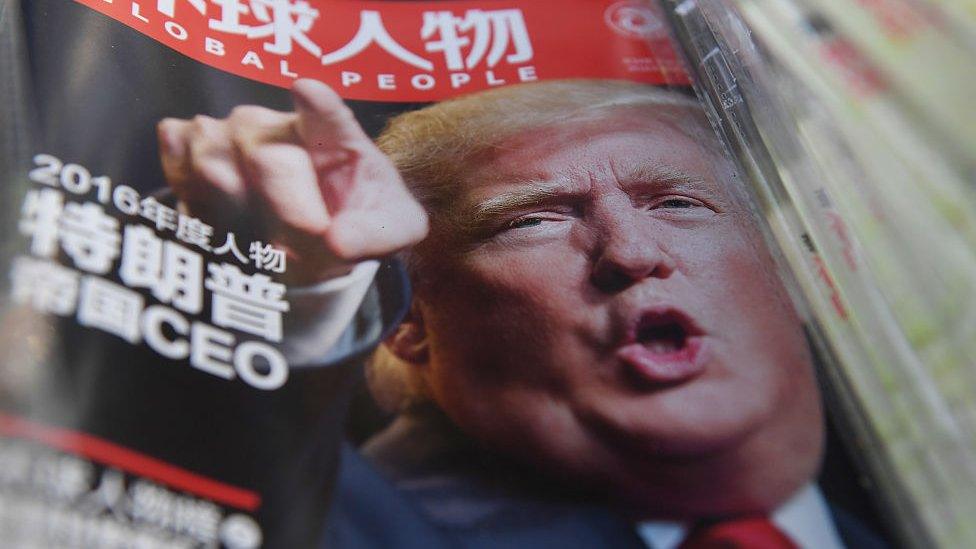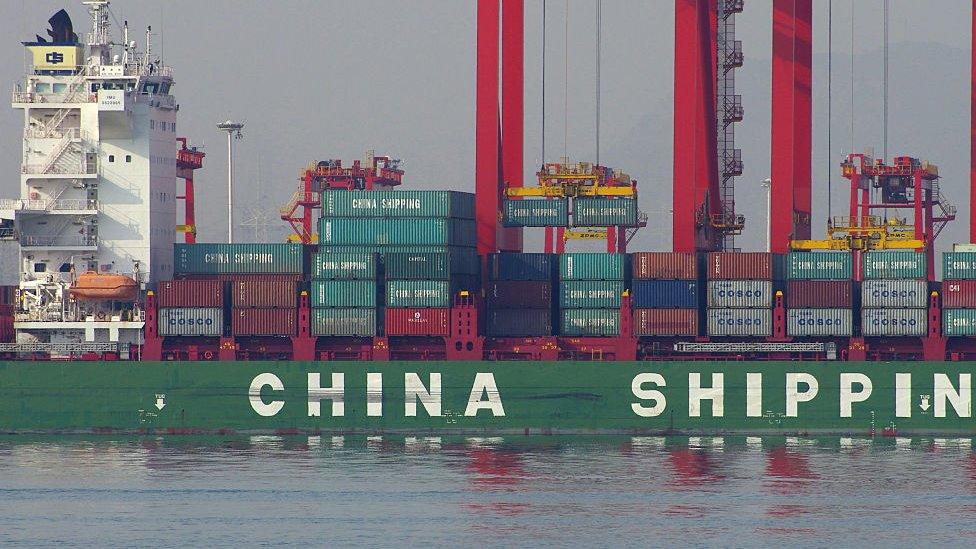China goes big in Davos - and here's why
- Published

Today will see a through the looking glass moment at Davos.
The leader of the world's largest Communist Party will take to the stage at the World Economic Forum (WEF) in the Swiss ski resort arguing for globalisation and the wonders of free trade.
At the same time as the US - the home of capitalism - has a new president saying that the present free trade rules need to be ripped up.
The Dragon is here to embrace Switzerland's annual rich fest.
And it's keen to be seen as a member of the club.
President-elect Donald Trump wants to take a baseball bat to the club house and build a new one.
'Route to prosperity'
President Xi Jinping is the first Chinese president to visit the WEF.
His message is likely to be uncompromising.
After Chinese officials warned against "nativism" last week - a direct reference to Mr Trump - Mr Xi is expected to say that global free trade has brought prosperity and that moves against it will only harm economic growth.
Yes, he may nod to the need for globalisation to be seen to be working for all.
But he will be clear that more trade is the route to prosperity, for Asia and Western economies.

China is making a very major point via Mr Xi's visit to the WEF.
With other leaders, notably Angela Merkel, the German chancellor, staying away, China is bringing the largest delegation it has ever mustered.
Business leaders such as Jack Ma - the founder of the global internet giant Alibaba - are in Davos, as is Wang Jianlin, another of China's richest men and chairman of the property developer Dalian Wanda.
The message is clear.
America might start looking inward, but China is seeking to extend its influence, and the chosen route is economics.
The big push at the WEF, the launch of the Asia Infrastructure Investment Bank to rival the US dominated World Bank, the revival of the "Silk Route" trade corridor from Asia to the Middle East and Europe - all point in one direction, and it's towards Mr Xi's enthusiasm for a more expansionist China.
Economics is wielded as a tool of influence.
The WEF full court press from Mr Xi comes at the same time as Mr Trump has made his position on China clear.
Although we have yet to discover what President-elect Trump will actually do when he takes office on Friday, the fact that he hired one of America's toughest China hawks, Peter Navarro, as the head of his new National Trade Council, suggests little change from Campaigning Trump.
And Campaigning Trump accused China of currency manipulation and "raping" America, saying that cheap Chinese exports had led to the loss of US jobs.

I wrote about China's hyper-chilly reaction to that allegation and what Mr Navarro might mean for Sino/US relations here.
So far, Mr Trump is talking tough.
A strong supporter, Anthony Scaramucci, who is set to be hired as another of Mr Trump's business advisors, will also speak at Davos.
And rather than extol the virtues of the present structures of world trade, he is likely to focus on what he sees as the weaknesses.
In the past he has backed Mr Navarro's criticism that allowing China to join the World Trade Organisation under President Bill Clinton was a decision that American industry "has never recovered from".
The contrast with President Xi will be stark.
And will reveal the tension simmering between the two largest economies in the world - a tension that will define the health of the global economy over the next decade.